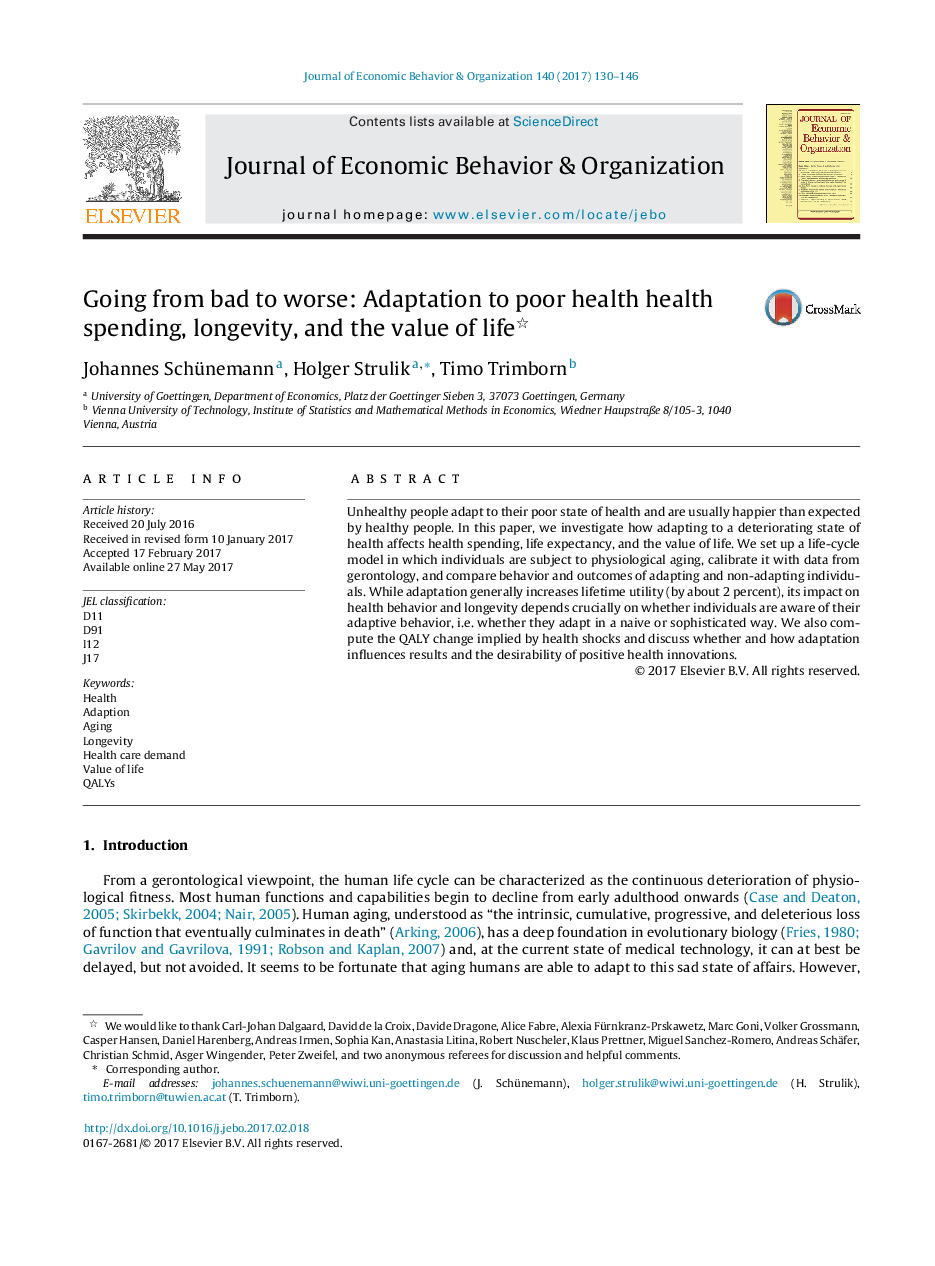| Article ID | Journal | Published Year | Pages | File Type |
|---|---|---|---|---|
| 5034435 | Journal of Economic Behavior & Organization | 2017 | 17 Pages |
Abstract
Unhealthy people adapt to their poor state of health and are usually happier than expected by healthy people. In this paper, we investigate how adapting to a deteriorating state of health affects health spending, life expectancy, and the value of life. We set up a life-cycle model in which individuals are subject to physiological aging, calibrate it with data from gerontology, and compare behavior and outcomes of adapting and non-adapting individuals. While adaptation generally increases lifetime utility (by about 2 percent), its impact on health behavior and longevity depends crucially on whether individuals are aware of their adaptive behavior, i.e. whether they adapt in a naive or sophisticated way. We also compute the QALY change implied by health shocks and discuss whether and how adaptation influences results and the desirability of positive health innovations.
Related Topics
Social Sciences and Humanities
Economics, Econometrics and Finance
Economics and Econometrics
Authors
Johannes Schünemann, Holger Strulik, Timo Trimborn,
